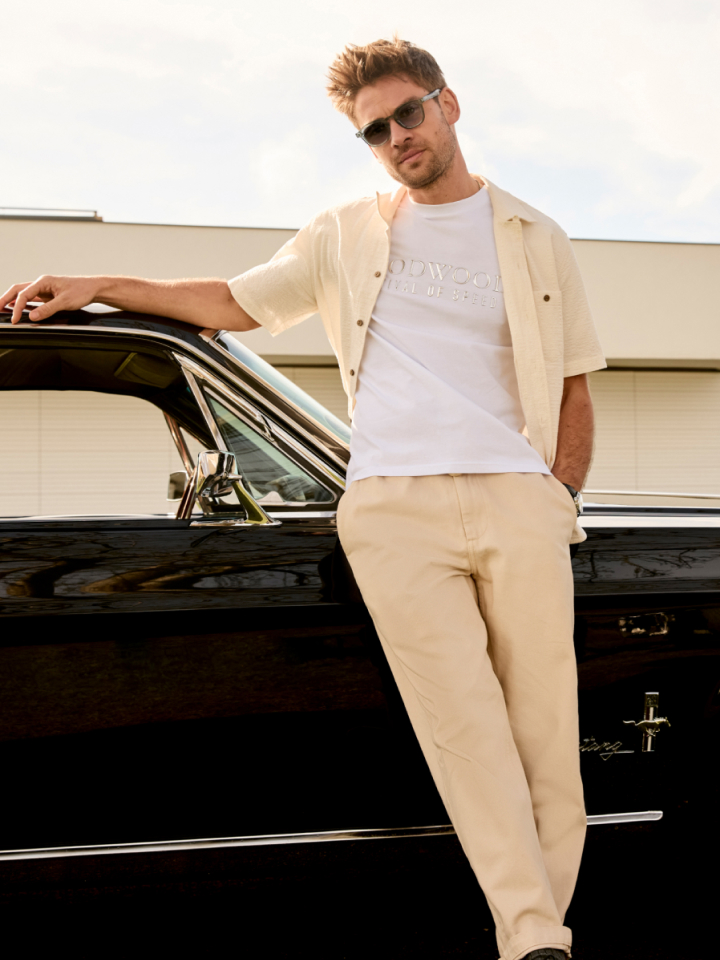Did these Porsche 917/30s push Can-Am too far?
The Porsche 917 is one of the most versatile sportscars ever to race. It competed in several series the world over. It’s a car whose bodywork was nipped, tucked, chopped and blistered in its five short years. While the engine ballooned from 4.5 litres up to 5.0 litres for conventional endurance racing, nothing quite compares to the Spyders prepared for the Canadian-American Challenge Cup.

Those engines jumped up to 5.4-litres, sprouted a pair of turbochargers as power swelled from just over 500PS, to more than 1,200PS (883kW) and in certain trims, up to almost 1,600PS (1,177kW) at its peak. Yes, that means that sat in the back of these 917/30s, two examples of Porsche’s craziest ever racing car that we have at the 81st Members’ Meeting presented by Audrain Motorsport, there’s some 3,200PS of potential.
That exceeds the sum total of the entire 30-car grid for the Derek Bell Cup. Don’t ever let it be said that we don’t do variety here at Goodwood.
Compared to the brutally pretty Group 5 prototypes of the World Sportscar Championship, the Can-Am Spyders were egregiously anabolic with gaping intakes and towering aerofoils. It was wacky races in real life. It was Can-Am.
Because when it comes to Can-Am, there is no option other than absolute, on-the-limit power. If you don’t push for the most ponies possible, as Ferrari found out with its 712P, the American big blocks will gobble you up. See the Bruce and Denny show of 1967 to 1970. But arguably, with the 917 ‘Can-Am Spyders’, Porsche proved it was possible to build a Can-Am car too far.
Certainly, there was no lesson in how to develop unfair performance for Porsche quite like the turbocharged Can-Am Spyder 917s. They were so savagely fast and brutally effective that the Can-Am regulators, which were famously work-shy up to this point, had to target fuel limits squarely at the Germans to give the bloody-nosed Americans a fighting chance come the 1974 season.
So it’s Can-Am that we can potentially thank for nurturing what would become an obsession with turbocharging in Stuttgart; the 917/10 and subsequently, the 917/30, being the the boosted progenitors of the 911 RSR Turbo and the numerous sports prototypes comprising an inimitable endurance racing legacy. Never mind of course, the legendary 911 Turbo.
The Sunoco car we have here at 81MM is the 917/30. Chassis 002 is the Donohue-driven, Penske-run championship winner, that made 1973 a year to forget for Chevrolet’s Can-Am powertrain engineers. It’s also the car Penske and Donohue brought along to Talladega in 1975 for tri-oval record run of 221.16mph on average, topping 240mph on the straights along the way.
The rather splendid-looking Valliant-liveried car is the champ’s older sibling, chassis 001, which was origonally built for testing in period. Raced by Vic Elford in 1973 in the European Interserie Championship, it racked up a win, before aiding Herbert Müller to his 1974 and 1975 Interserie titles. The car was originally in Martini colours but the Valliant colours you see today are those run during Müller’s Interserie campaign.
The 917/30 was arguably one Can-Am car too far, with the fuel limits that were brought in to control the fury all but strangling the cars and therefore, Porsche’s appetite for continued participation in the series. It was around the same time that the Can-Am bubble burst, if only temporarily. The lessons? Perhaps some rules are a good idea. Also, don’t goad Porsche into a horsepower war…
The 81st Members’ Meeting presented by Audrain Motorsport is live now! You can watch every second of the action right here on our GRR live stream.
Photography by Joe Harding.
Porsche
917/30
81MM
Can-Am
Members' Meeting
Event Coverage

Members' Meeting
How it feels to drive a Porsche 917 at Members’ Meeting | Andrew Frankel

Andrew Frankel
The Porsche 917/30 was the best car I drove in 2019 – Thank Frankel it’s Friday

Historic
Porsche 917/10 Can-Am Spyder prototype tipped for £4M+ at Retromobile






































































